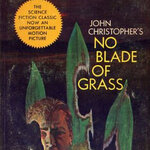
I gave you my media secrets on how to get interviewed by NPR. Now that I've heard the final cut of the Project Calliope segment, I can look at 'was it worth it'? Short answer: absolutely yes! I deem the NPR Project Calliope segment successful. It started a half hour into the program and ran a full 10 minutes and did not making me look like an idiot! Yes, I have simple criteria for media exposure.
The entire Calliope interview by Audie Cornish is up on NPR, with a little teaser material. The final cut was very focused on DIY culture (as opposed to science or the…






